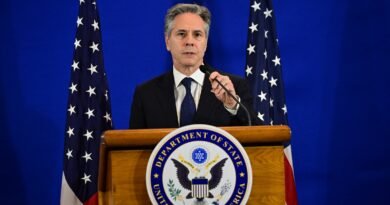Trump Announces 25 Percent Tariffs on Canada Starting Feb. 1, with Potential Increase in the Future
U.S. President Donald Trump announced his plans to impose 25 percent tariffs on Canada and Mexico starting Feb. 1, with the potential for the tariffs to increase over time. He mentioned that there might be exceptions for oil, and a decision regarding this exemption is expected by the end of Jan. 30.
Trump emphasized the necessity of imposing these tariffs due to issues with illegal immigration and drug smuggling from both countries. He cited specific instances where large amounts of fentanyl were intercepted at the borders of each nation.
Additionally, Trump addressed the trade deficits with Canada and Mexico, referring to the substantial subsidies provided to these countries by the United States.
Regarding the inclusion of oil in the tariffs, Trump indicated that a decision would be made based on various factors, including pricing and trade relationships. He highlighted the abundance of resources in the United States that could potentially offset any losses from placing tariffs on oil imports.
Ottawa’s Attempts to Stop Tariffs, Prepare for Them
Canada has taken several measures to address the concerns raised by Trump, including investing in strategies to enhance border security and combat illegal activities.
Efforts to mitigate the impact of tariffs have included initiatives to improve border surveillance, enhance intelligence capabilities, and allocate additional resources to combat illegal immigration and drug trafficking.



